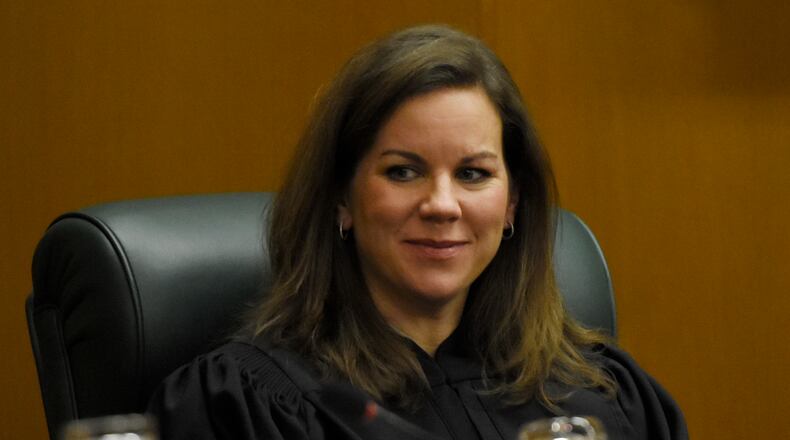Sandy Springs can ban the sale of alcohol at strip clubs and other adult establishments within its city limits, the Georgia Supreme Court ruled Monday.
Maxim Cabaret, now known as the Coronet Club, first filed a lawsuit against the city a dozen years ago, shortly after Sandy Springs became incorporated. The suit contends the city's ordinance prohibiting alcohol sales is unconstitutional.
But the state Supreme Court, in a decision written by Justice Britt Grant, said such laws can “constitutionally regulate negative secondary effects of strip clubs without unduly inhibiting free speech or expression.”
Sandy Springs adopted its ordinance after holding public hearings in late 2005. Council members were told that strip clubs depressed values of nearby properties and increased criminal activity, leading to higher costs for law enforcement and the court system. The city hired private investigators to conduct surveillance of the city’s adult clubs, and they reported seeing prostitution and public lewdness and intoxication.
In other news:
After the city banned alcohol sales, the club filed suit. Over the course of the lengthy litigation, Sandy Springs repeatedly amended its ordinance to eliminate purported unconstitutional provisions and the strip club amended its lawsuit eight times.
In her decision, Grant summed up the heart of the Coronet Club’s case.
“(The strip club) argues that by prohibiting the profitable combination of live nudity and alcohol, the city will effectively eliminate constitutionally protected conduct; that is, nude dance,” she wrote. “But constitutional protections are extended to speech and expression, not to profits.”
Both the First Amendment and the free speech provision of the Georgia Constitution protect nude dancing as a form of expressive conduct, Grant added. “But some limitation on the time, place or manner of such expression is constitutionally permissible, as are appropriately limited regulations targeting the negative secondary effects of adult entertainment establishments.”
About the Author
The Latest
Featured



